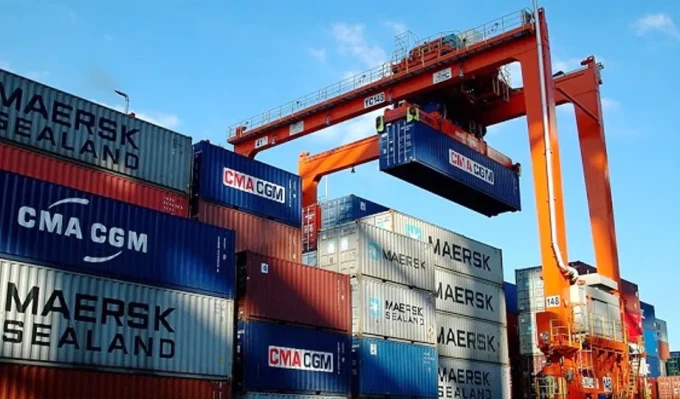NAIROBI (Xinhua) – Prices of food items in Kenya have increased sharply sparking fears that the nation may be headed for a fresh food crisis, barely since months after close to 3.5 million people faced starvation.
Prices of vegetables, tomatoes, potatoes, onions and other groceries have doubled with most urban centers across Kenya experiencing shortages. Analysts have blamed the situation on a dry spell, especially in source markets, which has affected food production.
Since December, Kenya has been experiencing dry weather in most parts of the nation, with temperatures hitting 28 degrees Celsius during the day and falling to 16 at night. Kenya Meteorology Department forecasters have predicted that the dry spell will continue in the next coming months and may be severe.
This is expected to significantly affect agricultural activities further and thus food prices, pushing many Kenyans, who are already burdened by high inflation that stands at 18.31 percent, on the edge. In (the capital) Nairobi, a bunch of sukuma wiki (kales), Kenya’s most popular vegetable is retailing averagely in groceries at 0.50 U.S. dollar, up from 0.18 in December. Similarly, cabbage, which is also largely consumed by many Kenyan families, is retailing at an average of 0.96 dollar.
This is incomparable to three months ago where a medium-sized head of cabbage retailed at 0.36 dollar. It is a similar situation for onions and tomatoes, where a survey in most suburbs in Nairobi indicated that an onion is retailing at 0.07 dollar while a tomato is going for 0.09 dollar at groceries. In supermarkets, which also sell groceries, prices of food items have risen by up to 10 percent.
“There is scarcity of vegetables that is why prices have shot up,” Grace Mutuku, who runs a grocery in Komarock, a middle-income residential area in Nairobi, said on Wednesday. The trader said that low supply of the commodities has forced wholesalers at Gikomba market, where she buys her supplies to raise prices. “I go there once after every two days and each time I find new prices. For the past one month, prices of sukuma wiki, tomatoes, onions and cabbages have been increasing,” she said.
When Grace visited Gikomba early Wednesday morning, she bought two tomatoes at 0.12 dollar, three onions at 0.03 dollar each and a bunch of sukuma wiki at 0.24 dollar. “This was an increase because on Monday, I had bought a bunch of kales at 0.18 dollar, three tomatoes at 0.12 dollar and five onions at a similar amount,” she said.
Statistics from the Ministry of Agriculture indicate that wholesale prices of food items in Kenya have increased. In Nairobi, a 50kg bag of kales is being sold at 36 dollars, up from 13 dollars in November. Similarly, a 13kg bag of dry onions is currently going for 12 dollars, up from 7.2 dollars three months ago. A 64kg box of tomatoes, which was selling for 43 dollars in wholesale food markets in November, is currently going for 66 dollars.
For cabbages, a 126kg bag is going for 46 dollars, up from 28 dollars in the similar period. Prices have also increased for legumes and fruits in wholesale markets in the capital by at least 20 percent. It is a similar situation for food costs in other cities across Kenya, where residents in Kisumu are paying one of the highest prices for a 50kg bag of kales at 42 dollars.
And as the prices rise, Mutuku and other grocers in Nairobi suburbs have to pass the costs to consumers.”We have to raise our prices to break even. But most customers are complaining because of the hikes. Some of them even are accusing us of hiking the prices to make a killing,” she said. When she increased the price of a bunch of kales to 0.48, up from 0.30 dollar early this month, Mutuku said most of her customers responded by reducing the quantity they used to buy.
“Things are not easier for both consumers and us. I have experienced drastic decline in my sales because of high prices. It is the first time since I started this trade that I am selling a single tomato at 0.14 dollar and consumers do not like it,” said Mutuku.
To survive, most consumers have responded to the high cost of food items by shunning others. “I am scarcely using tomatoes in foods I cook. I only use one or two when cooking beef or fish. But I no longer use them in vegetables. This has helped me save,” said Joan Adhiambo, a mother of four. Adhiambo noted that most consumers have little options of food they can use as substitutes.
“We have no foods we can switch to if one wants to save costs. The price of cabbage has shot up that one cannot take it as a substitute for kales,” she noted. Most of those who are suffering, according to Adhiambo, are people who have large families. “We are seven people in my house, four children, my husband, a house girl and I but am feeling it. I have to buy kales worth 0.72 dollar each day. This is more than double what I used to spend two months ago,” she said. Kenya National Bureau of Statistics in its January report indicated that inflation remains over 18 percent in nation because of high food prices. (Xinhua)
















































![Pula Co-Founders and Co-CEOs, Rose Goslinga & Thomas Njeru. Pula provides agricultural insurance and digital products to help smallholder farmers manage climate risks, improve farming practices and increase their incomes. [ Photo / Courtesy ]](https://businesstoday.co.ke/wp-content/uploads/2021/01/Pula-Co-Founders-and-Co-CEOs-Thomas-Njeru-Rose-Goslinga.jpg)




























































Leave a comment